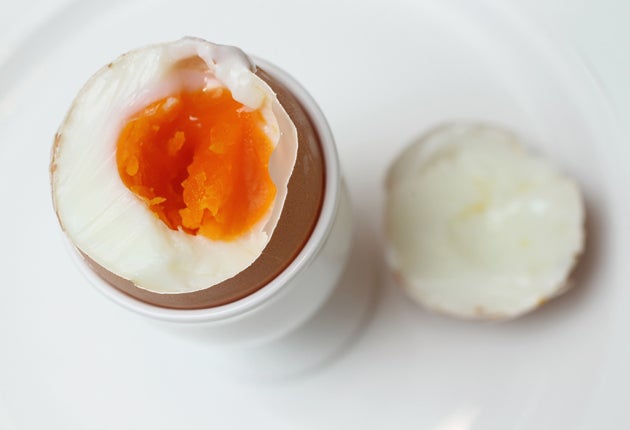Scientists discover way to unboil an egg – and the results are not as pointless as that sounds
No, this isn't likely to impact your average kitchen

A major study backed by the US and Australian governments has made a revolutionary breakthrough – they have managed to unboil an ordinary egg.
And while that may sound like a monumental waste of time and money, the results actually have huge implications for cancer treatments, biotechnology and a broad range of food production processes.
“Yes, we have invented a way to unboil a hen egg,” said Gregory Weiss, the lead research author and professor of chemistry and molecular biology and biochemistry at the University of California Irvine.
The discovery is significant because a hard-boiled egg white represents proteins that have been cooked, tangled up and – so we thought – irreversibly changed.
Yet by adding a urea substance to break down the cooked egg and then applying a high-powered machine called a “vortex fluid device”, scientists were able to force the proteins apart into their untangled, reusable form.
“It’s not so much that we’re interested in processing the eggs; that’s just demonstrating how powerful this process is,” Weiss said. “The real problem is there are lots of cases of gummy proteins that you spend way too much time scraping off your test tubes, and you want some means of recovering that material.”
Having an effective and quick method for reusing wasted proteins could revolutionise a vast range of scientific and manufacturing processes.
Cancer antibody creation, for instance, is carried out using expensive hamster ovary cells because they only rarely waste proteins. Doing away with this could ultimately make cancer research and treatments cheaper.
The team’s research was funded by the National Institute of General Medical Sciences in the US and the Australian Research Council, and published last week in the journal ChemBioChem.
The researchers wrote: “This method… could transform industrial and research production of proteins.”
Subscribe to Independent Premium to bookmark this article
Want to bookmark your favourite articles and stories to read or reference later? Start your Independent Premium subscription today.

Join our commenting forum
Join thought-provoking conversations, follow other Independent readers and see their replies